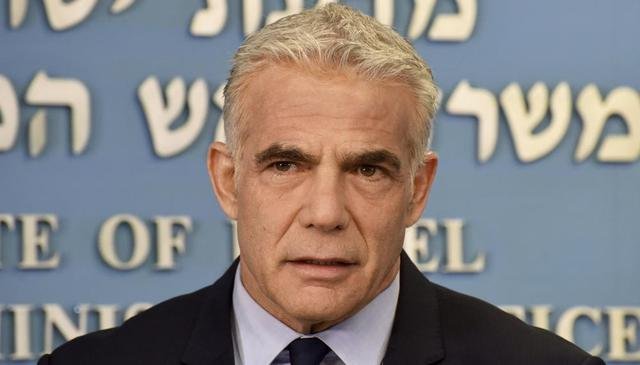Israel’s prime minister called on President Joe Biden and Western powers to call off an emerging nuclear deal with Iran.
Israel PM Yair Lapid urges West to reject Iran nuclear deal

JERUSALEM — Israel’s prime minister called on President Joe Biden and Western powers to call off an emerging nuclear deal with Iran, saying that negotiators are letting Tehran manipulate the talks and that an agreement would reward Israel’s enemies.
Yair Lapid called the emerging agreement a “bad deal” and suggested that Biden has failed to honor red lines he had previously promised to set.
“The countries of the West draw a red line, the Iranians ignore it, and the red line moves,” Lapid told reporters at a press conference in Jerusalem. An emerging deal, Lapid said, “does not meet the standards set by President Biden himself: preventing Iran from becoming a nuclear state.”
Biden has been eager to revive the 2015 deal, which offered sanctions relief to Iran in exchange for curbs on Iran’s nuclear program. The original deal unraveled after then-President Donald Trump withdrew from it in 2018 and reimposed sanctions, with strong encouragement from Israel.
It remains unclear whether the United States and Iran will be able to reach a new agreement. But the Biden administration is expected to weigh in on Iran’s latest offer in the coming days. With an agreement appearing close, Israel has stepped up its efforts to block it.
Lapid warned that Iran would divert billions of dollars in unfrozen funds to hostile militant groups, such as Hezbollah in neighboring Lebanon, that threaten Israel.
He stopped short of blaming any one power for the apparent progress of the talks, but he opened his statement Wednesday by suggesting that the U.S. and other negotiating powers are caving in to last-minute Iranian demands.
“The Iranians are making demands again. The negotiators are ready to make concessions, again,” Lapid said.
Lapid is serving as Israel’s caretaker prime minister until elections on Nov. 1, when he will face off against former Prime Minister Benjamin Netanyahu and other rivals. While the two men have deep differences, they hold virtually identical positions when it comes to Iran. In 2015, Netanyahu, now opposition leader, delivered a speech to Congress in an unsuccessful attempt to derail what would become President Barack Obama’s signature foreign policy achievement.
Israel has long said it would not allow its regional archrival Iran to obtain nuclear weapons, and that it was not bound by the agreements between world powers and Iran. It also has called for diplomacy to be accompanied by a “credible” threat to take military action against Iran if needed.
Iran insists its nuclear program is for peaceful purposes only.
On Tuesday, Lapid’s predecessor and governing partner, Naftali Bennett, said the country was “not committed to any of the restrictions stemming from the agreement and will utilize all available tools to prevent the Iranian nuclear program from advancing.” Bennett now holds the post of “alternate prime minister.”
Israel’s national security adviser Eyal Hulata is in Washington this week for talks with Biden administration officials, and Israeli Defense Minister Benny Gantz will head to the U.S. on Thursday for meetings with the head of the U.S. military’s Central Command, which oversees operations in the Middle East, and national security adviser Jake Sullivan.
Sandeep Raiza — Content Writer, Website Designer, SEO Strategist, and WordPress Expert AI specialist delivering impactful digital solutions that drive business growth.Combining creative storytelling with technical expertise.